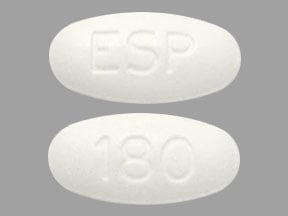
Nexletol Coupons & Savings Card – Discount Prices from $231.00
My prescription
Edit
180MG, Nexletol (30 Tablets)
Select pharmacy

CVS
$231.00
COUPON PRICE
Albertsons
$231.00
COUPON PRICE
Walgreens
$231.00
COUPON PRICE
Walmart
$231.00
COUPON PRICENexletol savings card
Show this card to your pharmacist
Albertsons
$231.00
BIN
ID
PCN
GRP
015995
LHKPW326957
GDC
DR33
Powered by
More prescriptions for high cholesterol
More prescriptions for high cholesterol
Price history for Nexletol
30 Tablets, 180MG
Average retail price for Nexletol
Average SaveHealth price for Nexletol
Our price history data is based on aggregated prescription data collected from participating pharmacies in America. Our prescription data updates daily to reflect the latest price changes. If you notice a missing data point, it means there wasn't sufficient data available to generate a monetary value for that date.
*Retail prices are based on pharmacy claims data, and may not be accurate when we don't have enough claims.
Nexletol dosage forms
Dosage Quantity Price from Per unit 180MG 30 Tablets $429.11 $14.30
| Dosage | Quantity | Price from | Per unit |
|---|---|---|---|
| 180MG | 30 Tablets | $429.11 | $14.30 |
How is Nexletol different from statins?
Nexletol (bempedoic acid) and statins both aim to lower LDL cholesterol levels, but they work through different mechanisms. Nexletol inhibits an enzyme called ATP citrate lyase, which is involved earlier in the cholesterol synthesis pathway, whereas statins inhibit the HMG-CoA reductase enzyme, a later step in the same pathway. Additionally, Nexletol is often used in patients who cannot tolerate statins or need additional LDL cholesterol reduction beyond what statins provide.
What are the side effects of Nexletol?
Nexletol, also known as bempedoic acid, may cause several side effects. Common side effects include muscle spasms, back pain, elevated liver enzymes, upper respiratory tract infections, abdominal pain, bronchitis, pain in the extremities, and anemia. Less common but more serious side effects can include tendon rupture and increased levels of uric acid, which may lead to gout. It is important for individuals to discuss any side effects they experience with their healthcare provider.
Is Nexletol hard on the liver?
Nexletol (bempedoic acid) can potentially affect liver function. It is important for patients taking Nexletol to have their liver function monitored regularly through blood tests. If there are any signs of liver issues, such as unusual fatigue, yellowing of the skin or eyes, or dark urine, it is crucial to contact a healthcare provider promptly.
Why is Nexletol so expensive?
The cost of Nexletol can be attributed to several factors, including the research and development expenses involved in bringing a new medication to market, the costs associated with clinical trials, and the pricing strategies of pharmaceutical companies. Additionally, as a relatively new medication, it may not yet have generic alternatives, which can also contribute to higher prices. Insurance coverage and patient assistance programs may help offset some of the costs for eligible patients.
Do side effects of Nexletol go away?
Some side effects of Nexletol (bempedoic acid) may diminish over time as the body adjusts to the medication. Common side effects like muscle pain, increased uric acid levels, or cold symptoms might improve. However, if side effects persist or worsen, it is important for the individual to consult their healthcare provider. The healthcare provider can offer guidance on managing side effects or consider adjusting the treatment plan if necessary.
